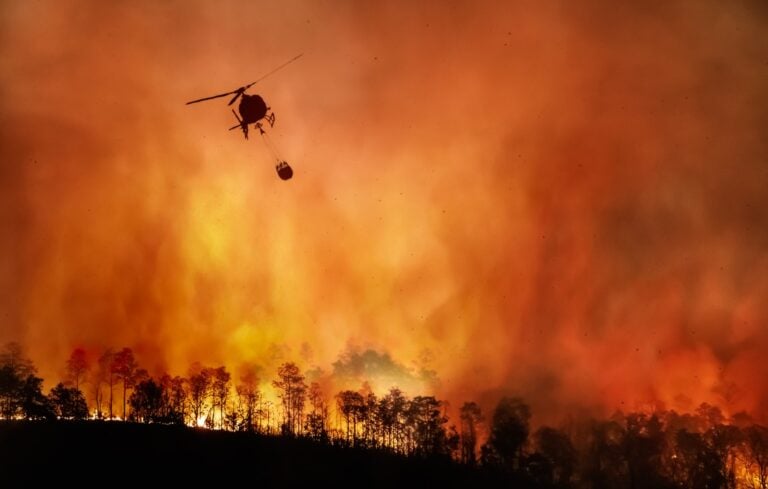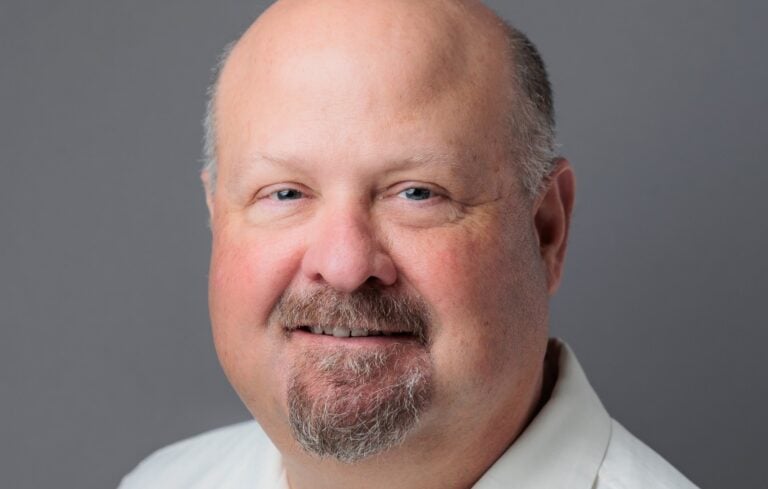
In the early days of College Hunks Hauling Junk, Founder and President Nick Friedman had a few light bulb moments.
Light bulb moment #1: When the mother of Omar Soliman, Friedman’s best friend and eventual business partner, called the two friends “the college hunks hauling junk” when they were working out of the back of an old beat up cargo van. They both realized the name was catchy and it stuck.
Light bulb moment #2: When their startup business took off that first summer after a small amount of marketing, they recognized that there was a legitimate business model that could grow.
Light bulb moment #3: When people would call Friedman about the company’s erratic drivers—not knowing that Friedman and Soliman themselves were driving the cars. They recognized they had to work on the business, not in the business, if it were to ever scale. “If we were ever going to have another truck, let alone another location, we had to start documenting and creating checklists for how we did everything.” This mentality would eventually lead them to creating systems for their process, which then led to their current franchising business model.
Fourteen years later, College Hunks Hauling Junk has total revenues of more than $100 million, 2000 employees and has 104 franchises across the country. It’s been an interesting journey along the way. They’ve dealt with a recession, not striking a deal on the first ever episode of Shark Tank and numerous challenging franchising relationships in the early days.
Chief Executive spoke with Friedman about scaling the business, the franchising business model and more. Below are excerpts from this conversation.
We started documenting what we did every day. It was a checklist. How do we wear the uniform? How do we drive the truck? How do we greet the customer? How do we answer the phone? That was our early standard operating procedures and operating manual. The first time we would start hiring people, we would say, “Here’s the checklist. Here’s what we’ve been doing and what seems to work. So now you can do this.: We had some trial and error there and some employees made mistakes, but then we got people who would help improve the system. So, it wasn’t just me and Omar developing and evolving the systems. It was the team members that we were hiring who were also helping to scale those systems.
We learned about the idea of franchising, we attended a trade show and there was a little seminar about how to franchise your small business. And at the time, it seemed like sort of a glamorized way for us to grow and scale because we thought, “We’ll site back and collect royalties and the franchise owners will do the heavy lifting.” In reality, when we went down the path of franchising, we realized it was, a very steep learning curve and it really involved starting a new business from scratch because we were no longer just in the moving and junk removal business. We were in the franchising business. We were fortunate to surround ourselves with good mentors and read a lot of really good books and go to a lot of really good seminars and soak it all in. We tried to apply everything that we were learning and seeing into our business and empower the people who we were hiring to really do the same thing.
We added our second, third, eventually eighth truck up in the D.C. area. And when we began franchising, we decided to move our headquarters to Tampa, Florida because one of our ideas was that we would have an inbound call center that booked the appointments for the franchisees. The D.C. area, which is where we started, was really high cost of living, cost of labor, cost of office space, didn’t really have a call center market to draw talent from. Tampa checked all those boxes for us. And so we set up shop in Tampa, started franchising, worked with a franchise consultant to help prepare us to be able to do that.
In the early days, we leveraged a lot of publicity actually to get our name out there. We were on the very first episode of the first season of Shark Tank before anyone knew what that was [they were not able to strike a deal]. We were on the air, getting some exposure for the brand. I had gotten some nice write-ups in various publications that kind of put the brand on the map. It made us realize, we have something here that we need to continue to build towards and grow. It was a function of time, persistence and people that have really been the keys to our long-term scale.




Chief Executive Group exists to improve the performance of U.S. CEOs, senior executives and public-company directors, helping you grow your companies, build your communities and strengthen society. Learn more at chiefexecutivegroup.com.
0

1:00 - 5:00 pm
Over 70% of Executives Surveyed Agree: Many Strategic Planning Efforts Lack Systematic Approach Tips for Enhancing Your Strategic Planning Process
Executives expressed frustration with their current strategic planning process. Issues include:
Steve Rutan and Denise Harrison have put together an afternoon workshop that will provide the tools you need to address these concerns. They have worked with hundreds of executives to develop a systematic approach that will enable your team to make better decisions during strategic planning. Steve and Denise will walk you through exercises for prioritizing your lists and steps that will reset and reinvigorate your process. This will be a hands-on workshop that will enable you to think about your business as you use the tools that are being presented. If you are ready for a Strategic Planning tune-up, select this workshop in your registration form. The additional fee of $695 will be added to your total.

2:00 - 5:00 pm
Female leaders face the same issues all leaders do, but they often face additional challenges too. In this peer session, we will facilitate a discussion of best practices and how to overcome common barriers to help women leaders be more effective within and outside their organizations.
Limited space available.

10:30 - 5:00 pm
General’s Retreat at Hermitage Golf Course
Sponsored by UBS
General’s Retreat, built in 1986 with architect Gary Roger Baird, has been voted the “Best Golf Course in Nashville” and is a “must play” when visiting the Nashville, Tennessee area. With the beautiful setting along the Cumberland River, golfers of all capabilities will thoroughly enjoy the golf, scenery and hospitality.
The golf outing fee includes transportation to and from the hotel, greens/cart fees, use of practice facilities, and boxed lunch. The bus will leave the hotel at 10:30 am for a noon shotgun start and return to the hotel after the cocktail reception following the completion of the round.